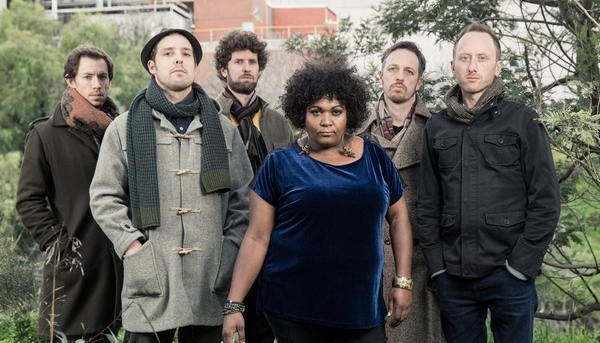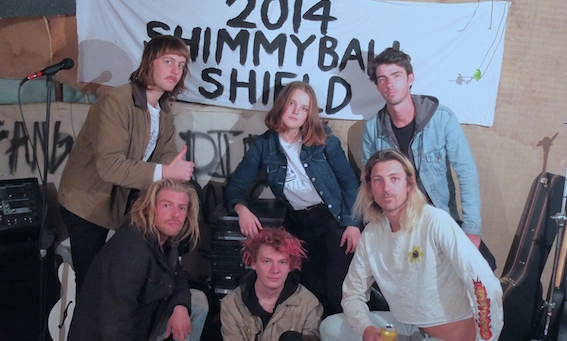“We just wanted to play for a long time together, and it wasn’t happening,” Donovan says. “Then I started getting some gigs where I was like ‘We should do some Putbacks stuff.’ We started off just getting a bunch of covers together and then after that we wrote a big lot of songs together and then we ended up recording them.”
Dawn is a showcase of Donovan and The Putbacks’ respective talents, pairing smooth soul and Motown funk with powerful vocal performances. Throughout the songwriting process, they upheld an open collaborative policy.
“A lot of the songs either started from my ideas lyrically and melodically and I was sharing that with The Putbacks, or the other way ‘round, where they would send me instrumental tracks and say ‘Can you put something to that?’” Donovan says. “I’ve always got lyrics that I blab on about and there’s a lot of things that I don’t use just sitting there. When we were realising that we needed to get some more songs together, I was saying to Mick ‘I’ve got some words’ and he was saying that they had some ideas.”
When it came to cultivating the album’s stylistic demeanour, funk and soul music was the obvious choice. “The Putbacks gave me a lot of playlists of the stuff that they listen to, some of the new soul, and we just took it from there,” Donovan says. “When I first started singing, I sang lots of country music and I still love lots of old country. And probably when I was going to high school, it was some cheesy R&B music. I was hungry for listening to different styles of soul music – anything outside of country music.”
On top of this, Donovan gathered inspiration from a selection of her vocal heroes. “Definitely my grandmother,” she says. “She had a very strong voice, she was very gospel. I love listening to Etta James and there’s another singer that my dad used to play me heaps of, which was LaVern Baker. I’ve always loved that older stuff. And definitely Aretha Franklin; I love her style, I love her voice and The Putbacks introduced me to a lot of amazing live recordings that I’d never heard before.”
Donovan’s expressive lyrics are central to the record’s unique character. She delves into accounts of domestic and racial abuse, whilst placing emphasis on building strength and overcoming personal difficulties.
“I think around the time I was suffering a little bit of depression and going through that heavy stuff,” she says. “I was also part of a really beautiful choir that I was singing with, with Uncle Archie Roach, called the Bloodstream Choir. Uncle Archie’s album Into the Bloodstream was a lot to do with healing, and lot of that touring that I did with him, I felt like I was singing and dealing with my own personal stuff. That was kind of helping; I was getting strength back, so I just started writing my own stuff. It was a good way of dealing with it.”
Given the sensitive nature of her lyrics, she might’ve been inclined to keep them to herself. But she knew The Putbacks would understand her, musically and personally. “To gain that strength and get out of that rough patch, it was kind of easier to go ‘Let’s write something really fucked up about a few little situations’,” she says. “With the Putbacks, that’s been wanting to happen for a long time, just wanting to play with each other, so I knew I had a lot of support there. Mick and Rory, they’ve been like my brothers. So it works really well.
“Some of the songs, like Black Woman and even songs like Over Under Away, I don’t know how I would’ve wanted to share that any other way,” she adds. “I thought it was in a safe place and I just felt the confidence to go ‘You know what, I’m ready to fucking say this.’ Especially with Black Woman being a song about being in a heavy violent relationship, having the courage to sing about it… it was a long time between when any of that relationship happened, but it still needed to be said.”
Upon its release last year, Dawn gained mountains of critical praise. Since that time, Donovan’s lyrics have inevitably been interpreted in a whole variety of ways. She’s learned not to worry about whether they’re understood precisely as she intended.
“When I first started writing I was like ‘I don’t know if I want to say that,’ or ‘I’ve got to play it safe’,” she says. “These days I’m like ‘You know what, I’ve just got to say it how I feel like it is,’ because there’s a lot more people relating to that.”
BY AUGUSTUS WELBY







